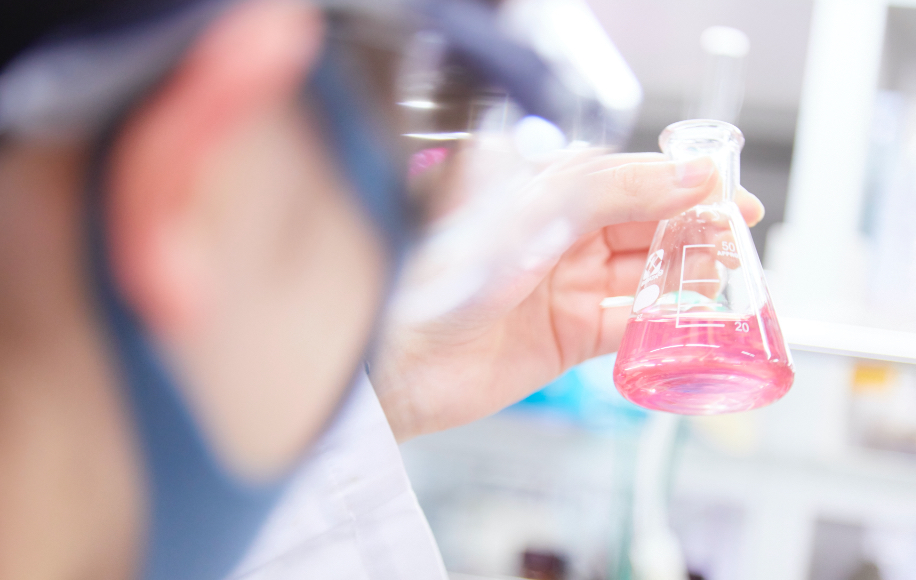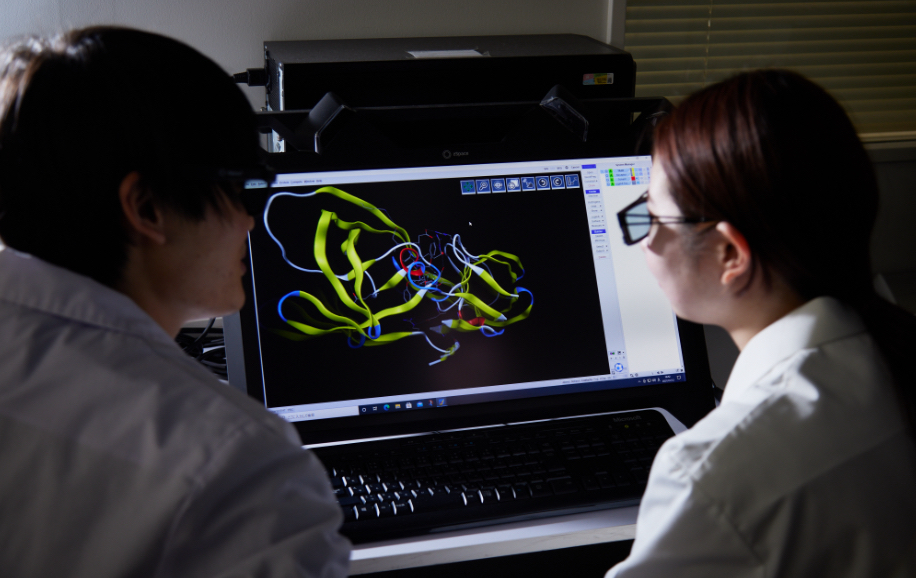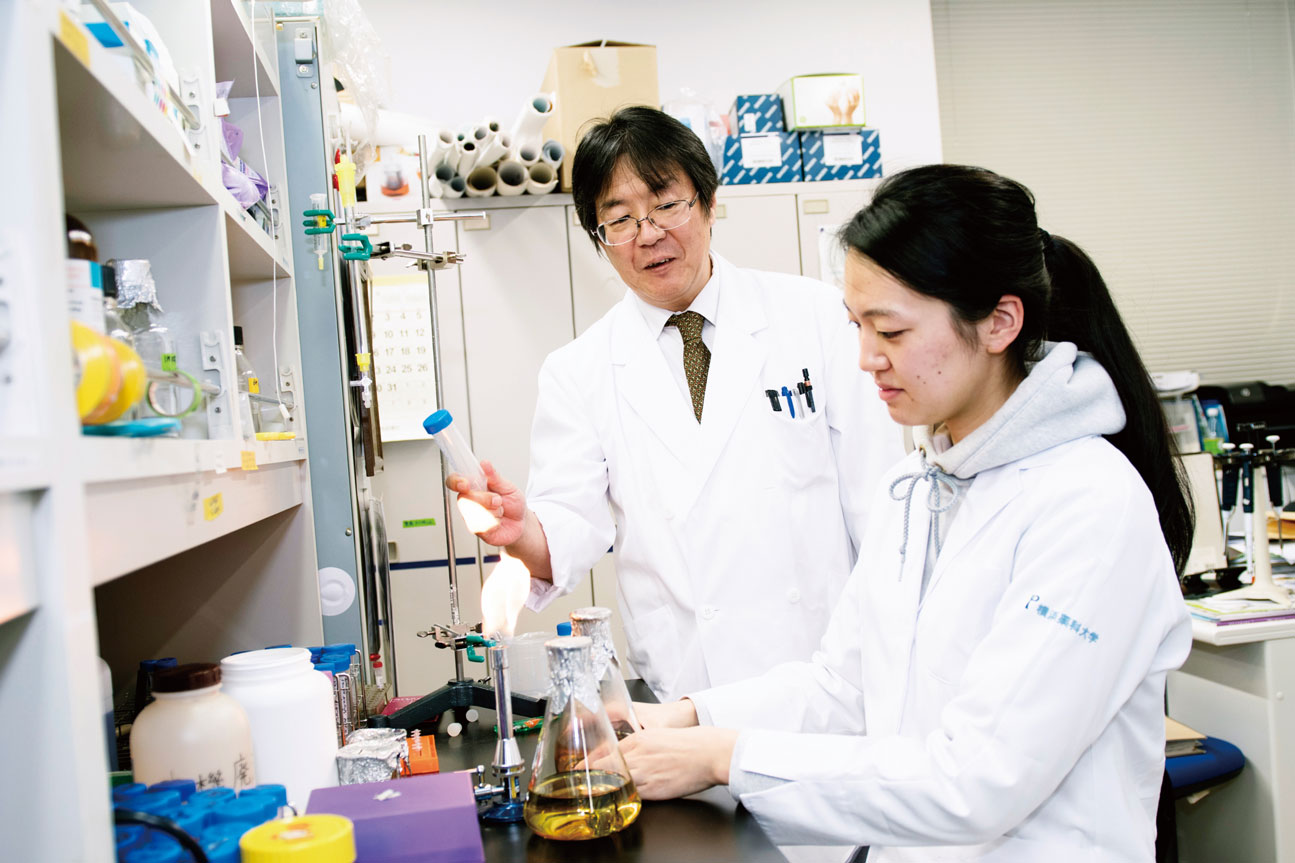

What is health pharmacy?
Japanese people currently have the world's longest average lifespan.
There is a high level of interest in maintaining older people's health and preventing lifestyle-related diseases, and the question of the degree to which healthy, fulfilling lives can be maintained is a major healthcare issue. Under these circumstances, the objective of this department is to offer training in pharmacy that contributes to primary prevention (preventing the occurrence of disease) and extending "healthy longevity," enabling people to live as long as possible without developing dementia or becoming bedridden.
How long can a healthy lifestyle be maintained?
To tackle this issue, pharmacists will require a broad knowledge of all aspects of how people live that relate to the development of disease, including sanitation, food hygiene, environmental conservation, and chemical toxicity research. Such pharmacists will not limit themselves to treatment but will be able to go further and contribute to community medicine and self-medication from the standpoint of preventive medicine.

Training human resources for success in diverse fields
Career paths for graduates of pharmaceutical universities are not restricted to the medical field. Pharmaceutical knowledge is in demand in numerous different sectors, including chemicals, food, cosmetics, and trading companies. Other potential career paths include environment-related institutions such as pollution research centers and public health institutes, narcotics control, and police crime laboratories. The path toward acquiring a high level of specialist knowledge and engaging in research at a university or research institution is also open.
In addition to specialist pharmaceutical training, the Department of Health Pharmacy also offers a comprehensive education on health-related areas, including food, nutrition, exercise, the environment, and public health, training human resources for success in diverse fields.
Research Fields
Life Science
Basic research for planning "primary prevention" to prevent the development of disease

Biochemistry
compose the living body, including sugars, amino acids and proteins, fats, enzymes, vitamins, and co-enzymes, making clear how they are biosynthesized and metabolized at the molecular level. This academic field also identifies physiologically active substances within the living body.
Immunology
The study of immunology is rapidly advancing, with its focus mainly on biodefensive reactions, and this academic field is making major contributions to the prevention, diagnosis, and treatment of infections. Research areas include the mechanisms of immune function and regulation and research on anti-allergy drugs.
Radiation Science
Radiation has become essential to the diagnosis and treatment of disease. An in-depth understanding of the properties of radiation and its effects on the living body is required to enable more accurate diagnosis, effective treatments, and reduced medical radiation exposure. This important research field is vital to the development of medical and pharmaceutical science.
Molecular Biology
Technology to manipulate DNA, the substance that transmits genetic information, is now rapidly advancing, and it is anticipated that vital phenomena will be analyzed at the molecular level and applied to healthcare and drug discovery in the near future. This field uses this new technology for the study and teaching of phenomena including gene expression and protein synthesis.
Environmental Science
In today's world, harmful substances such as agricultural chemicals, PCBs, dioxins, environmental hormones, fluorocarbons, exhaust gases, and hazardous waste pose immense problems for the global environment, the majority of which have yet to be resolved. This field focuses on the academic study of environmental health and conservation, and is one of the pharmaceutical research fields that is closest to daily life.
Preventive Pharmacy
This field studies matters such as healthy food consumption and public health, with the aim of promoting preventive medicine.

Drug Analysis
To evaluate the efficacy and safety of pharmaceutical products, first it is necessary to understand their basic properties, such as the structures and properties of chemical substances, and then to analyze the physical properties that affect drug parameters including their in vivo kinetics and safety. This research field is also indispensable for the quality testing of pharmaceutical products and its association with the related area of formulation design.
Medical Microbiology
Infections are diversifying, such as antibiotic-resistant bacteria appearing in tandem with scientific development. The globalization of virus-borne diseases is also a matter of concern. Overcoming viral infections such as influenza and AIDS, as well as the various forms of resistant bacteria, is the shared wish of humankind, and this field is at the forefront of preventive medicine.
Nutritional Biochemistry
There is a Japanese saying that "drugs and food both come from the same source"; diet is extremely important for nourishing life and maintaining health. This field carries out chemical studies of the nutrients in food, investigates the effects of their overconsumption or deficiency on the human body, and ascertains the functions of chemical substances in food, making it a vital research area for preventive medicine.
Public Hygienics
The Japanese for "public hygienics" combines the characters for "public," "life," and "defense," and this academic field literally defends the lives of the public. It is based around health and hygiene, including statistics, epidemiology, and methods of health management. Other areas of research include food poisoning due to rotten food or microbial contamination, and the effects on health of chemical substances such as pesticides and herbicides, food additives, and stimulants.
